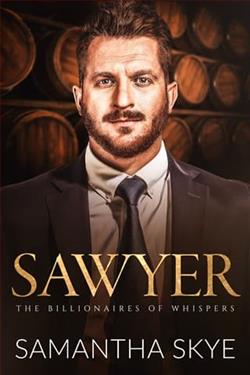Page 3 of Paranoia
“And now I’m about to be cast out to sea.”
“If you’re running for City Council, I call thatcatching a wave.”
Cantor laughed. “As tough and dangerous as police work can be, I think I still prefer it to politics.”
I raised my glass of Guinness and said, “Hear, hear.”
Trilling turned and stared at me, so I quickly said, “Sorry—the Irish pub got in my brain.” I turned back to Cantor. “Let me know if there’s anything I can do for you.”
A crooked smile, the result of a broken jaw from a protester, spread across her face. “As a matter of fact, I do have something you could help me with.”
I already regretted making the offer.
CHAPTER 5
KEVIN DOYLE HAD sat almost in the middle of the church during the service. He felt completely anonymous among the waves of cops and family mourning their loved one. He wore a simple blue suit. He could’ve been a piece of furniture, for all he was noticed. Doyle knew all about their loved one. He’d done his research. Lou Sanvos had gone to Hofstra on the GI Bill after he got out of the Army. After graduating, he’d decided to join the NYPD. It felt like Sanvos had done more for young people in the Bronx than all of the politicians in the whole city. That was a sort of activity Doyle respected. And it was that reputation that had made killing Lou Sanvos so upsetting.
Doyle’s dad used to say, “We need to do more for the community because too many people do nothing.” Doyle had joined the Army because of his dad’s civic sense. And now Doyle hadeliminated one of the few people who did more than their share.
Doyle had planned it perfectly. The light traffic up in White Plains had made him feel exposed, but the higher speed limit on the outskirts of town allowed Lou Sanvos to go fast enough for Doyle to tap the front bumper of Sanvos’s Lincoln Continental with his stolen Ford. Physics did the rest. After Sanvos’s car slammed into some kind of safety supply store, Doyle had been prepared to stop and finish off his target, but when he saw the fire, he knew his job was done.
Doyle remained seated in the church as the service concluded, taking in the architecture and traditions. A young Greek Orthodox priest, dressed in a traditional white cassock for funerals, paused at the end of the aisle and looked at him.
“Are you all right, my son?”
Doyle nodded. He didn’t need anyone remembering him. “Just getting ready to light a candle for Lou.”
“That’s very thoughtful. We’re also collecting money for the youth centers Mr. Sanvos helped create. The donation box is up front.”
Doyle nodded to the priest as he stood up. The shrapnel in his left knee sent a quick spike of pain through his body. It happened so often he was surprised he still noticed it. Maybe it was judgment. If it was some kind of punishment, it wasn’t enough.
The priest said, “Are you in this parish?”
“No, Father, I’m Catholic. Just here for the funeral.”
“Are you a police officer?”
Doyle smiled and shook his head. “Not even close.”
He turned toward the main entrance to the church, where he stopped and lit a candle for Lou’s soul. Then he dug a twenty outof his pocket and slipped it into the donation box the priest had mentioned.
Outside, the fresh air felt good on his face. He looked up at the gathering clouds and decided to head back to his hotel. He’d worry about any messages later. He’d done enough for the cause this week.
CHAPTER 6
CELESTE CANTOR MOVED through the crowd like a great white shark. No pun intended. She was graceful and smooth, and anyone who noticed her got out of the way immediately.
I left Trilling at the bar and followed behind her like a remora. She certainly wasn’t cold or menacing. She stopped and talked to a couple of people as we worked our way to an empty table in a corner.
An old-time narcotics detective gave Cantor a hug. He said, “Did you hear about Tabitha Arnold? She died from carbon monoxide after she got drunk and passed out in her kitchen with her car running in the garage.”
Cantor nodded. “And I just heard Ralph Stein and Gary Halverson both committed suicide down in Florida.”
The retired narcotics detective shook his head and looked down at the floor. “I heard. I knew Gary had advanced lungcancer. I just can’t believe they’d use propane tanks to blow themselves up.”
It was a shock to hear from a credible source about the retired detectives, longtime associates who’d started as patrol partners. Police suicides were becoming an epidemic.
Cantor continued to make her way through the crowded pub, graciously accepting congratulations from a half dozen people on her imminent retirement. A few people also wished her luck in her campaign.















